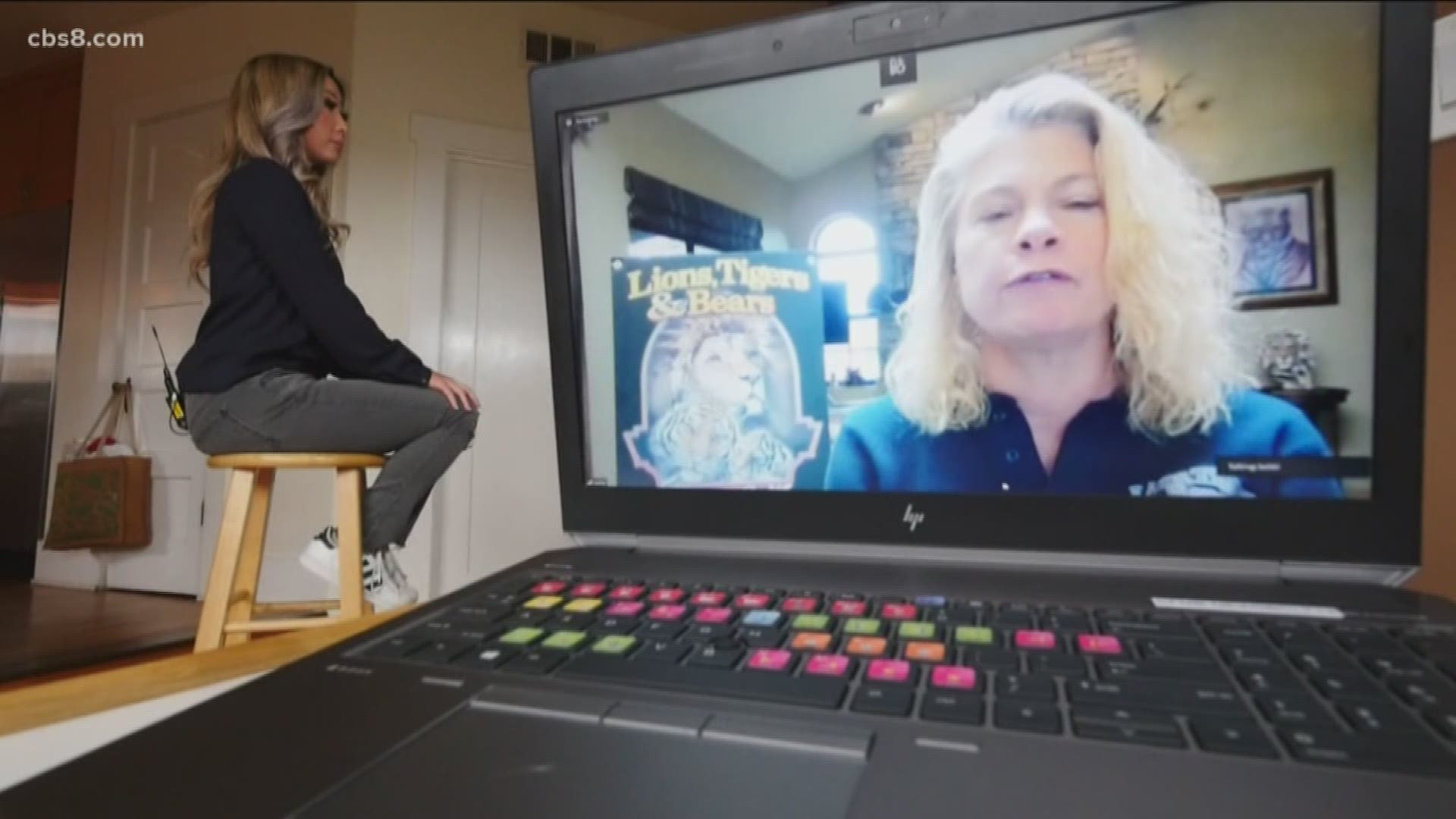SAN DIEGO — A tiger at the Bronx Zoo in New York City tested positive for COVID-19. The infected tiger is a 4-year-old female Malayan tiger named Nadia. Her sister, Azul, two Amur tigers, and three African lions also showed coronavirus symptoms. All are expected to recover.
It's believed to be the first known COVID-19 infection in an animal in the United States, or of a tiger anywhere. The zoo has been closed since March 16. According to staff at the Bronx Zoo, the tiger was infected by an employee who had coronavius, but didn't initially show any symptoms.
"[We're] pretty heartbroken, pretty shocked the tiger had to be the first species of animals to come up with the COVID-19," said Bobbi Brink, the founder of Lions, Tigers and Bears, an exotic animal sanctuary in Alpine.
"It makes us think and do a little more [personal protective equipment] management," Brink said. "I can’t even imagine doing any better disinfecting. We are disinfecting nonstop here."
Brink added that cleanliness is a priority.
"My staff, we're locking ourselves down, not even leaving the property, adding the social distancing between us and the animals where we can," Brink said.
Brink said as standard practice, there is always a piece of fencing between staff and every exotic animal on the property. They do not go into the habitat to touch the animal.
The San Diego Zoo said its doing its best to protect its animals, too. In a statement to News 8, a spokesperson wrote that its "increasing its bio-security measures [and] making sure wildlife care professionals are practicing as much physical distancing as possible from the animals."
At the San Diego Humane Society, employees are monitoring the situation in the Bronx, too. Right now there are no cases of pets with COVID-19 in the United States.
"At this point, there’s no evidence in the U.S. that shows a pet can transmit COVID-19 to a human," said Communications Manager Nina Thompson. "We're asking everyone treat their pets like other humans. So if you have COVID-19, social distance from your pet. Keep them in your home, but make sure you practice good hygiene," she said.
The San Diego Zoo released the following statement:
In light of this recent news, we at San Diego Zoo Global assure you that the health and safety of our employees, our community and the wildlife in our care remains our top priority. As you have come to expect, we have many strong biosecurity practices already in place to prevent the spread of disease between wildlife and wildlife care team members.
With the increased challenge posed by the community spread of COVID-19, we have further increased our biosecurity measures. Many of the same measures used to protect people (i.e. physical distancing, face covers, hand washing and disinfection) also serve to prevent the spread of COVID-19 to our animals. When wildlife care professionals are unable to ensure physical distancing we use additional measures.
Through communications received from scientists around the world, we are aware that great apes and possibly other primates, bats, carnivores and suids (pigs) may be impacted by COVID-19. Although none of the animals in our care have been affected, San Diego Zoo Global veterinarians and wildlife care professionals are discussing increased biosecurity measures, just as we have for other infectious diseases such as virulent Newcastle disease and avian flu.
The USDA provided a statement today confirming the COVID-19 case in the Bronx Tiger and provided some Questions and Answers, included here.

